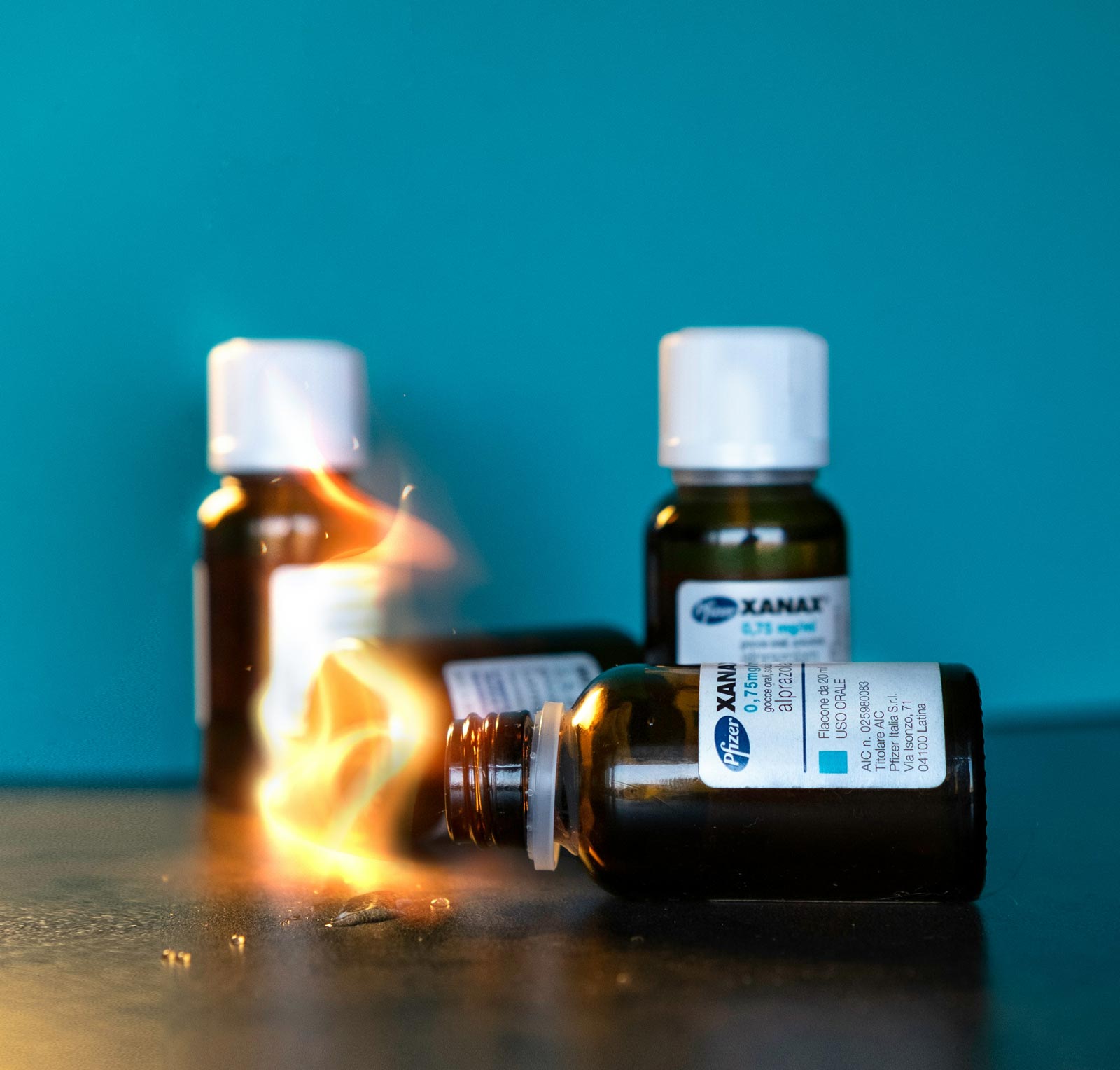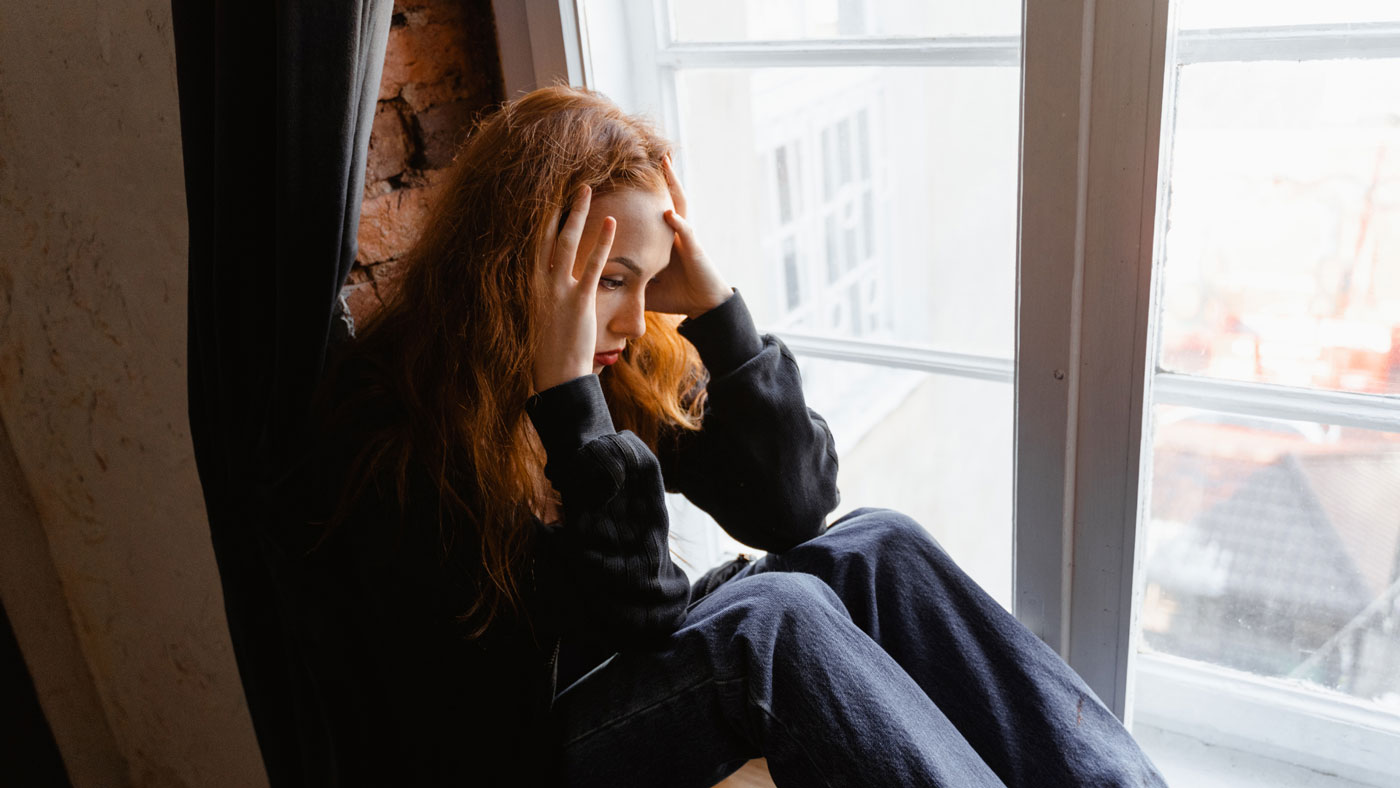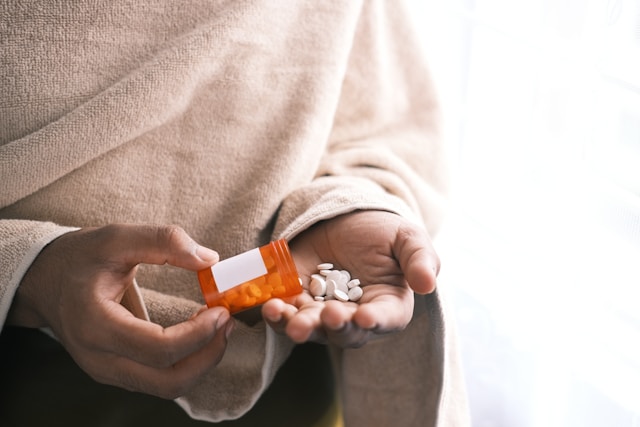Benzodiazepines, also known as benzos, are central nervous system (CNS) depressant drugs that have legitimate medical uses, but they’re often abused for their effects. With prolonged use, benzos can lead to dependence and addiction.

There Is A Better Way To Live. It's Time To Get The Help You Deserve.
Statistics on Benzodiazepines Use, Misuse, and Addiction
As of 2019, about 30.6 million adults (12.6%) reported past-year benzodiazepine use, with about 25.3 million (10.4%) reporting it was used as prescribed and 5.3 million (12.9%) reporting misuse.[2] Benzo misuse accounts for 17.2% of overall use, which is primarily among people aged 18-25.[3]

Effects Of
Benzodiazepine Abuse
When prescribed, benzos can relieve the symptoms of anxiety and sleep disorders like insomnia. Benzo abuse can have different effects, such as:
- Confusion
- Weakness
- Drowsiness
- Dizziness
- Lack of coordination
- Behavioral changes
- Anorexia
- Chronic headaches
Can You Overdose on Benzodiazepines?
Yes, it’s possible to overdose on benzos. While you can overdose on benzos alone, mixing them with other depressant drugs like opioids greatly compounds the risk of a fatal overdose.
Signs and Symptoms of Benzodiazepines Overdose
The signs and symptoms of benzo overdose may include:
- Confusion
- Drowsiness
- Diminished reflexes
- Respiratory depression
- Coma
- Death
What to do if you suspect someone is overdosing on benzodiazepines:
A benzo overdose is a medical emergency. If you suspect someone is overdosing on benzos, call 911 immediately. Prompt medical attention may be able to reverse a benzo overdose. Stay with the person until help arrives.
Dangers of Long-Term Benzodiazepines Use
Even with medical supervision, benzos are intended to be used for the shortest period possible. Long-term benzo abuse can have serious consequences, including:
- Addiction
- Impaired concentration and memory
- Depression
- Sexual problems
Long-term benzo abuse can also cause symptoms that mimic the conditions it’s prescribed to treat, such as insomnia and anxiety.
Mixing Benzodiazepines with Other Drugs
Benzos may be abused with other drugs like cocaine, heroin, or alcohol. When benzos are taken with other depressant drugs can increase the risks of severe respiratory depression, while mixing them with stimulants can have unpredictable and dangerous consequences. Mixing benzos with any drug significantly increases the risk of overdose.
Benzodiazepines Addiction And Abuse
Benzo addiction and abuse is classified as a sedative, hypnotic, or anxiolytic use disorder in the Diagnostic and Statistical Manual of Mental Health, Fifth Edition (DSM-5). The criteria for this disorder include:
- Taking benzos in larger amounts or for longer periods than intended
- Trying to reduce or stop benzo use unsuccessfully
- Experiencing cravings
- Failing to fulfill obligations at work, home, or school
- Continuing benzo use despite interpersonal, social, or health problems
- Giving up important recreational activities because of benzo use
- Continuing to use benzos despite physical or psychological problems
- Developing a tolerance for benzos and experiencing withdrawal
Are Benzodiazepines Addictive?
Misuse of benzos significantly increases the risk of addiction. Even when they’re used as prescribed, benzos can build up tolerance, which is when you need more and more of the drug to get the same effects. This can encourage misuse and abuse.
How Addictive are Benzodiazepines?
Benzos are Schedule IV substances with a high potential for abuse and dependence. They aren’t considered as addictive as some other depressants, such as opioids, but they’re still a habit-forming substance.
Signs of Addiction to Benzodiazepines
Though addiction can have different signs and symptoms for everyone, they generally include:
- Giving up hobbies
- Social withdrawal
- Compulsive drug seeking
- Spending time with new people
- Weight loss
- Hostility
- Sudden mood changes
- Emotional detachment
- Irritability and anger
- Secretive behaviors
Benzodiazepines Addiction And
Mental Health
Abusing benzos for long periods can cause severe psychological dependence and adverse effects. Most notably, benzo abuse can exacerbate the problems it’s prescribed to treat, such as anxiety or insomnia.


Cutting Agents Used For Benzodiazepines
Most benzos on the market are prescribed pharmaceuticals that are used or misused. They are available illicitly, however, and often come in prescription tablets. Benzos can have cutting agents that can be dangerous, however, such as fentanyl.
Benzodiazepines Addiction Treatment
Addiction is a complex disease that must be treated on an individual basis. The length and cost of treatment depend on the individual’s use, history, and care plan. The process is also highly individualized and designed to support each individual’s needs during recovery.
Benzodiazepines Addiction Treatment Levels of Care
Benzo addiction can be challenging to treat, but there are several levels of care intended to provide the ideal support.
- Medical detox: Detoxing from benzos on your own is not recommended. Benzo withdrawal can be intense, painful, and may lead to complications. Medical detox provides a safe, comfortable place to detox under medical supervision.
- Inpatient treatment: Inpatient or residential treatment offers intensive care and structure with staff monitoring in the early stages of the recovery process.
- Outpatient treatment: Outpatient treatment offers more flexibility for people who need to balance their recovery with other responsibilities. They’re permitted to live at home while attending treatment sessions on a more flexible schedule.
- Aftercare: Once treatment programs are complete, aftercare programs provide long-term support to manage relapse and stress to promote long-term sobriety.
Therapies Used in Benzodiazepines Addiction Treatment
Along with the level of care, treatment for benzodiazepine addiction involves individualized therapy plans to address the underlying causes of addiction. These may include:
- Cognitive behavioral therapy
- Eye movement desensitization and reprocessing (EMDR)
- Nutritional counseling
- Experiential therapy
- Somatic experiencing
- Group therapy
- Brainspotting
- Outdoor recreation
Co-Occurring Disorders
Co-occurring disorders are two conditions – often a substance use disorder and mental health disorder – that occur at the same time in the same person. Benzo addiction often co-occurs with bipolar disorder and schizophrenia.
How to Find Benzodiazepines Addiction Treatment in Orange County
The best way to find benzo addiction treatment is by speaking to your primary care provider or insurance provider. You can also use the Behavioral Health Services Locator tool through SAMHSA to find rehab centers.
After you evaluate your options, be sure to do your research and learn more about the experiences others have had at the treatment center. Check out reviews and testimonials, speak to staff, and ask people in your network for recommendations.
Learn More About Our Programs
Benzodiazepines Detox And Withdrawal Management
Benzo withdrawal can have intense symptoms like panic attacks, sleep issues, irritability, sweating, poor concentration, weight loss, nausea, and headaches, as well as psychotic reactions or seizures. Medical detox is used to manage these symptoms and reduce the risk of relapse or complications.
Frequently Asked Questions
What Are the Most Common Benzos?
Alprazolam (Xanax), clonazepam (Klonopin), diazepam (Valium, and lorazepam (Ativan) are the most common benzos used in medical settings. These benzos are often the most illicitly abused types of benzos, partly because of access.
Do Benzos Cause Dependence?
Benzos can cause dependence, which is when the body and brain become accustomed to the presence of a drug and can’t function without it, even with appropriate prescription use. this typically leads to withdrawal when benzo use is reduced or stopped. Dependence is part of addiction, but it’s important to note that dependence is not indicative of addiction on its own.
Which Benzo Is the Most Addictive?
Benzos are addictive drugs that have similar effects. Klonopin may be the most addictive benzo, however, because it has two separate components that bring a rapid onset of the drug’s effects. It also stays in the body for longer periods than some other types of benzos.
Sources
[1] Schmitz, A. (2016, May 6). Benzodiazepine use, misuse, and abuse: A Review. The mental health clinician. Retrieved from https://www.ncbi.nlm.nih.gov/pmc/articles/PMC6007645/ on 2023, November 22.
[2] FC;, M. D. L. (n.d.). Benzodiazepine use and misuse among adults in the United States. Psychiatric services (Washington, D.C.). Retrieved from https://pubmed.ncbi.nlm.nih.gov/30554562/ on 2023, November 22.
[3] FC;, M. D. L. (n.d.). Benzodiazepine use and misuse among adults in the United States. Psychiatric services (Washington, D.C.). Retrieved from https://pubmed.ncbi.nlm.nih.gov/30554562/ on 2023, November 22.


